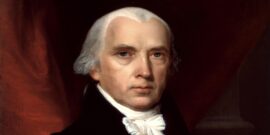


Should a university strive to be an open society?
Many will feel an immediate impulse to answer in the affirmative. Universities should be places of exploration and discovery. They should foster lively intellectual exchange. They should create a space in which people feel emboldened to pursue the truth to surprising or unexpected places, potentially moving against the grain of the surrounding culture. These goods can only be realized in an environment where scholars and students enjoy some measure of freedom. That sounds like an open society.
On further reflection, complications arise. Some freedom is needed for discovery and debate, but what happens when a sizable contingent of society wants to shut down debate? Are they welcome too? Certain qualities, such as honesty, intellectual curiosity, and a genuine concern for truth, are vital for a healthy scholarly culture. Universities may need to be “closed” to individuals who clearly lack those qualities. Then there are questions about formation and cultivation. If universities seek to educate students, forming their minds in salutary ways, might they not need to be discerning about which faculty will be equal to that task? But a society that carefully chooses worthy members is surely “closed” in some meaningful ways.
This forum is adapted from a live debate hosted on the campus of the University of Austin (UATX). Four faculty members offered their views on whether, and in what ways, the university should be a free society. The participants diverged somewhat in their attitudes towards openness. All agreed, however, that the university must continually strive to facilitate the pursuit of truth.

Apr 2, 2025 All Are Not Welcome Morgan Marietta Universities must be open to debate, closed to coercion.

Apr 2, 2025 Beyond the Battlefield of Ideas Jacob Wolf Truth is what makes a uni-versity, rather than a multi-versity.

Apr 2, 2025 On the Hypocrisies of the New American University Scott Scheall Instead of being more "open" or "closed," American universities may just need to be less hypocritical.

Apr 2, 2025 Cultivating Conversations Patrick Gray Universities are necessarily closed associations—because they have a mission to fulfill.









